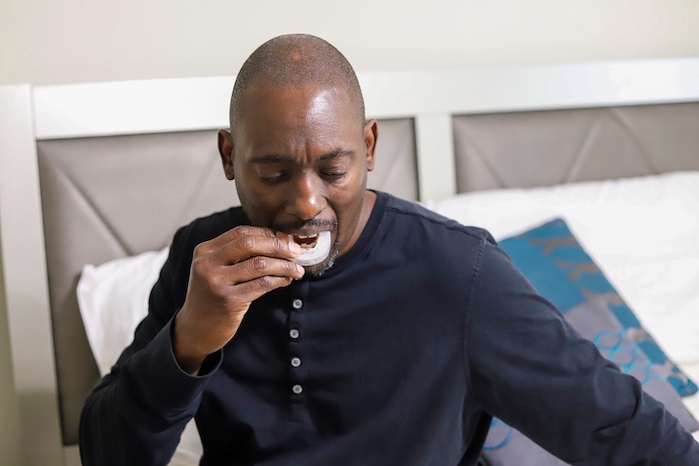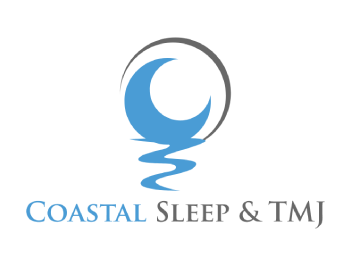Untreated Sleep Disordered Breathing can accelerate the aging process and progressively slow down and even paralyze your life!
Many of our patients are in treatment because they have already had a serious illness or event that has caused permanent damage to their health.
It is far better to reduce your risk of these events BEFORE they occur.
How do I get an oral appliance for my sleep apnea?
Treatment of Sleep Apnea requires a full team approach. Dentists cannot diagnose Obstructive Sleep Apnea (OSA), which is a common disease. However, a face-to-face medical evaluation is necessary to rule out many other diseases, including some that are more dangerous than OSA.
The first step in getting treatment for snoring or sleep apnea is to obtain an evaluation by a sleep physician. They will provide a formal diagnosis and prescription based on your sleep study. We work with many reputable physicians and can help you with the selection process!
After a consultation with your sleep physician, Dr. Harper will determine if you are a good candidate for oral appliance therapy. Depending on your case, we will use different oral devices for sleep apnea. You and your physician may decide that oral appliance therapy may be a good treatment option for you.
Your consultation with Dr. Harper will include a thorough evaluation and discussion about which oral appliance will work best for you—not everyone uses the same type of appliance! Then, he will discuss what you may expect with treatment. Once we have succeeded with the oral appliance, you will see your physician for a follow-up evaluation.

How does an oral appliance work?
Oral Appliance therapy has come to the forefront as an extremely effective, scientifically tested treatment option for Obstructive Sleep Apnea.
The American Academy of Sleep Medicine issued a statement declaring that Oral Appliance Therapy is an excellent treatment option for those suffering from Mild to Moderate Obstructive Sleep Apnea and is proving to be very effective in severe cases as well- particularly in patients who are CPAP intolerant.
The oral appliance works to allow the airway to remain as open and firm as possible during sleep by:
Preventing the lower jaw and tongue from falling back into the airway, which is “normal” during sleep
If necessary, advance the lower jaw and tongue to further open the airway.
What exactly is an oral appliance?
You may hear many different terms for the same device: MRD, MAD, and oral appliance. They all mean the same: oral appliances treat snoring, OSA, and similar conditions. These small devices you wear in your mouth are similar to an orthodontic retainer or sports mouthguard. They help prevent the collapse of the tongue and soft tissues in the back of the throat. Thus allowing adequate air intake and keeping the airway open during sleep.
Coastal Virginia Sleep Solutions is always evaluating new oral appliance designs. At any one time, we offer at least five different designs. You may use these appliances alone or in conjunction with other means of treating OSA, which includes lifestyle changes, CPAP therapy, or oral surgery.
Oral appliances reposition the lower jaw during sleep, bringing the tongue forward. This stimulates the activity of the muscles in the tongue and other structures, making them more rigid over time. The appliance also holds the lower jaw and other structures in a stable position. Depending on the type of appliance, you can either open the mouth or not while wearing it at night. They are generally more comfortable to wear long-term than a TRD or TSD.
What about problems with oral appliance therapy?
Dr. Harper and his Coastal Virginia Sleep Solutions team have extensive training and experience in complex full-mouth reconstruction and TMD problems. In treating these issues, he knows how to prevent them.
Avoiding common side effects include:
- Bite changes
- TMD / jaw pain
- Tooth movement
You must complete a proper evaluation by a TMD / Sleep dentist so that we can choose the right oral appliance design to reduce or eliminate these risks. In addition to our evaluation and appliance design choice, we will develop a specific protocol for you to help reduce the risk of any side effects.
Current dental issues / missing teeth:
If you currently have missing teeth, implants, decayed teeth, or broken teeth, we need to factor them in when choosing the correct appliance. It is not necessary to fix all tooth problems, but we will need to discuss them as part of the overall plan.
What about alternative treatment?
We have many patients who have struggled with weight loss and finding the energy to exercise and eat right. But when they were treated for their sleep apnea, IT GAVE THEM THE ENERGY to kick-start a healthier lifestyle.
These patients experienced the GREATEST IMPROVEMENT IN QUALITY OF LIFE because they were addressing many factors at the same time. Addressing many factors leads to success. Adequate, quality sleep is a vital component of a healthy, happy life.
Lifestyle changes:
Your physician will likely advise you to halt some habits that can aggravate sleep apnea, such as smoking, alcohol consumption, use of sleep aids, and late-night eating. Exercising regularly and losing weight if needed are two examples; weight loss of just 10% can dramatically improve your breathing ability. On the other hand, these areas are very easy to talk about and, unfortunately, often unsuccessful.
Sleep hygiene is always an area that we discuss, as not everyone just falls and stays asleep for the night. The BIGGEST problem with sleep habits (sleep hygiene) is our dependence on blue screens, including phones, TVs, and monitors. It is best to avoid using these screens for at least two hours before you sleep so your brain knows it is time to prepare for sleep.
How do I know if I am a candidate for oral appliance therapy?
Patients will work with their physician to determine the best treatment for their sleep apnea or sleep-disordered breathing. Some physicians recommend oral appliance therapy as the first choice for mild or moderate OSA.
Patients with severe OSA should have an initial trial of CPAP due to its greater effectiveness than an oral appliance. Patients with intolerance to CPAP or who refuse treatment with CPAP (no matter the severity level) should use OAT (Oral Appliance Therapy). Moderate help with breathing at night is better than no help!
Oral appliances are also indicated for patients who are not candidates for surgery, including tonsillectomy, tongue surgery, adenoidectomy, palatal surgery, jaw advancement, or tracheotomy.
Coastal Virginia Sleep Solutions service locations
- Sleep Apnea Chesapeake, VA
- Sleep Apnea Newport News, VA
- Sleep Apnea Norfolk, VA
- Sleep Apnea Virginia Beach, VA
If your physician has diagnosed you with sleep apnea, schedule a consultation with Dr. Harper at Coastal Sleep & TMJ to learn more about the benefits of oral appliance therapy.
